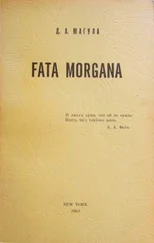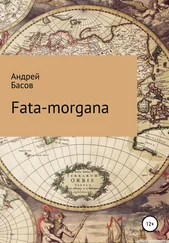The next morning I found C. in her usual frenzy. She was leaving on a mission to the other side of the country; having already lost twenty-four hours, her natural impatience had been exacerbated, and the office resounded with her orders and her movements. I found her sitting down for a minute, thinking, and I took her hand; she was smiling, and mechanically stroked my palm. I had to leave, she was running down a hallway, also in a hurry: she kissed me quickly on the mouth and disappeared.
The airport was a complete mess. Six huge military cargo planes had landed one after the other, no one could point mine out to me; I limped furiously from one to the other, grinding my teeth in pain as the sun beat down on me, winding my way between the sacks of food and the crates of supplies being unloaded, the pickup trucks weaving across the tarmac, the furious soldiers, the lines of haggard people waited to be evacuated, I called out in Russian to the Ukrainian or Lithuanian pilots to ask their destination, they themselves often weren’t sure. I actually came close to getting on the wrong plane and landing in the wrong country. I found C. under the wing of an Endover, crouching down with two colleagues, making plans and issuing last-minute instructions. She greeted me distractedly, everything was so confused that I didn’t pay much attention to it. I climbed into the Endover; she was taking one of the big cargo planes heading west.
I had counted on seeing her the following week; but it would be over a month. The day before my return to K —, a doctor friend examined my foot and formally forbade me to travel. I was dismayed, but there was nothing to be done: the infection was far advanced, it was threatening the bone, I needed surgery right away. The country where we were didn’t have adequate infrastructure; he advised me to go to the capital of a nearby country, where there was an excellent hospital. Appalled by the idea of not being able to join C. again, I had to resign myself to it. In K —, C.’s favorite perfume had disappeared; a friend had quickly shipped me a bottle; unable to go offer it to her in person, I packed it up and, before my departure, asked her office to forward it to where she was. I added a magnificent card, a Vermeer showing a girl sitting at a table in front of a window, her face in full light, holding a glass and smiling at a proud soldier shown from behind. I found this girl’s face luminous, and I wrote a brief message on the back of the card: I tried for a charming, ironic tone, I don’t know, maybe I succeeded. I was too unsure of what was happening really to express what was overwhelming me, but I also didn’t want to seem cold, indifferent, as my letters so often are, incapable of expressing true emotions. Still in doubt, I sealed the card and handed it and the perfume over to a colleague of C.’s, who promised me they’d be forwarded.
He would not keep his promise; but then nothing would happen as planned. C. in fact still hadn’t returned to K —: this news, which had wrenched my heart when I learned it, consoled me a little now for my forced departure, and I hoped that my return from convalescence would coincide with hers. Such was not to be the case, of course. The Fates, those teases, reveled in scrambling up our movements. The operation went very well, my surgeon turned out to be an old and admirably eccentric German, who livened up the procedure by holding forth, as he cut away at me, on the history of the medical use of cocaine from 1875 to the present. I thus learned that the invention of cocaine derivatives, preserving the anesthetic properties of the product while suppressing its euphoric aspects, had been stimulated by the excessive love the greatest doctors and surgeons of the time had for this drug, a love that motivated them to empty their shelves of it in order to consume it through the nose, the veins, and even, at that time, through the eyes. This problem, quite embarrassing for the reputation of the medical profession, came to an end in 1919 with the appearance of Novocain, a distant and coarse ancestor of the miraculous molecule that now made it possible that only the unpleasant scraping sound of the scalpel carving through my flesh distracted me from the surgeon’s eloquence. I had to keep to my bed for a few days; once I was, precariously and painfully, on my feet again, I inquired about departing flights. I was booked on a Friday light for G —, the city where most of the flights leaving for K — originated. I had a lot of work to catch up on elsewhere, but I wasn’t worried about taking the not very professional liberty of adjusting my travel plans this way. I called K —: C. was neither there, nor even in the city in the West where she had stayed to work (the city of M —), but had returned to G — to report on her activities. I was delighted: I could, without any qualms, spend the weekend in her company in G —, then see to my affairs elsewhere and join her again later on. Then the people who controlled the airplanes canceled my booking: there was freight, they explained, that was more important. There were no planes before Monday, I was in despair, I knew that C. would have gone back to M — by then. For some time now, I realized, this woman had completely occupied my life, and at bottom I even delighted at the suffering that the impossibility of seeing her again caused me, so strong was the emotion. I decided to call her in G — (I was very anxious about how she would welcome such an importunate step): she seemed delighted to hear from me; her voice pierced my soul. She was leaving Saturday for K —, then from there for M —. I asked her to wait for me before going to K —, she couldn’t, but promised to meet me again a little later. “See you soon, dear child,” she said as she hung up; torn between the pleasure these words gave me and the frustration of not being able to see her again, I spent the afternoon trying every way possible to find a plane. Another organization had chartered one, I contacted a friend there, he promised to find me a seat on it; two hours later, he called me back to explain that his boss had vetoed it (I learned later on that another woman, whom I only barely knew, but who for a reason I never found out heartily detested me, had struck my name from the list). I thus spent several hours oscillating between the most violent hope and the blackest rage. I stormed, limping from one office to the other, I drove the secretaries mad with my obstinacy, I forced them to chase down leads whose uselessness was obvious, but which made them lose their time and their patience. At six in the evening, a miracle occurred: the first carrier, whom I had called back as a last resort, calmly informed me that he not only had room for me, but also for some two hundred kilos of freight that I was supposed to bring back. This was a call to action, since of course the freight wasn’t ready, the customs papers were missing, the freight forwarder was closed for the day: by eight o’clock, though, everything was in order. I had to be at the airport at six in the morning, I was there at 5:30, it didn’t open till 6:30, and at 7:00 they came to tell me that the plane had broken down and wouldn’t fly that day. My despondency was so profound that I was only barely aware of the appalling comedy of the situation. In the afternoon I called C. again: she was still leaving the next day and couldn’t delay her trip, but hearing her comforted me a little. I did indeed leave the next day. The plane was flying on to the city where I was supposed to work,there was no point for me to get out at G —, now that C. was no longer there. On the flight, I devised the mad hope of meeting her for a few minutes on the tarmac in G —, of being able to speak to her even if only for a moment, see her eyes and her smile, kiss her. Her plane, of course, had left hours earlier.
Читать дальше











